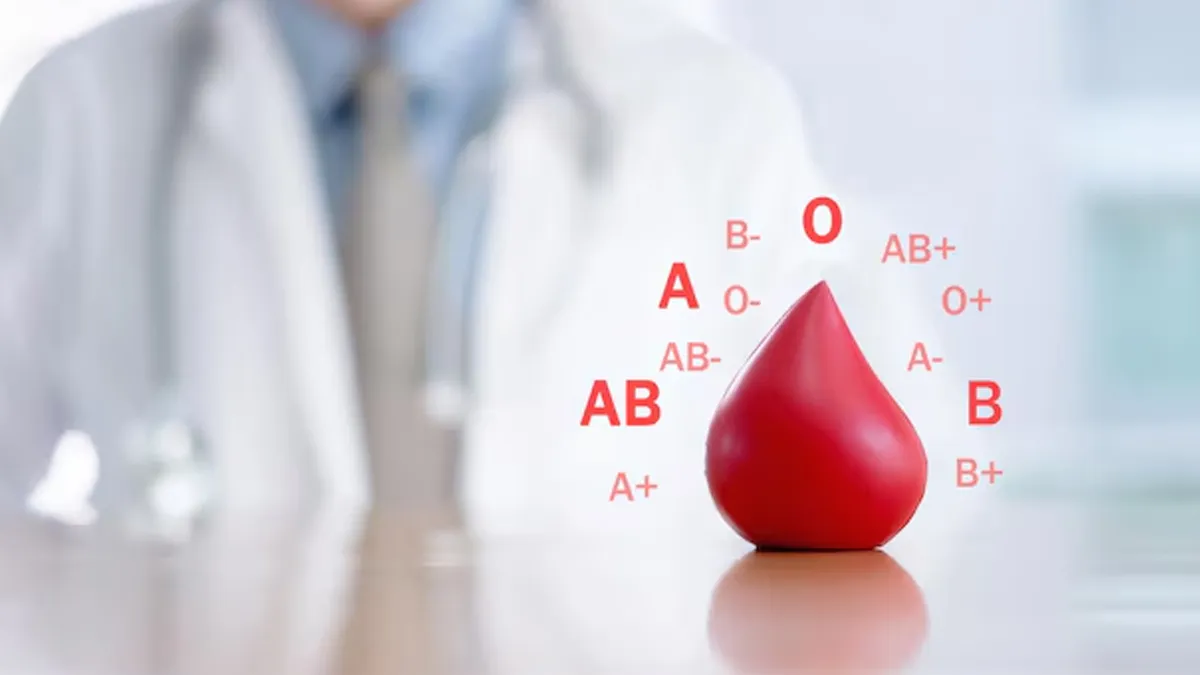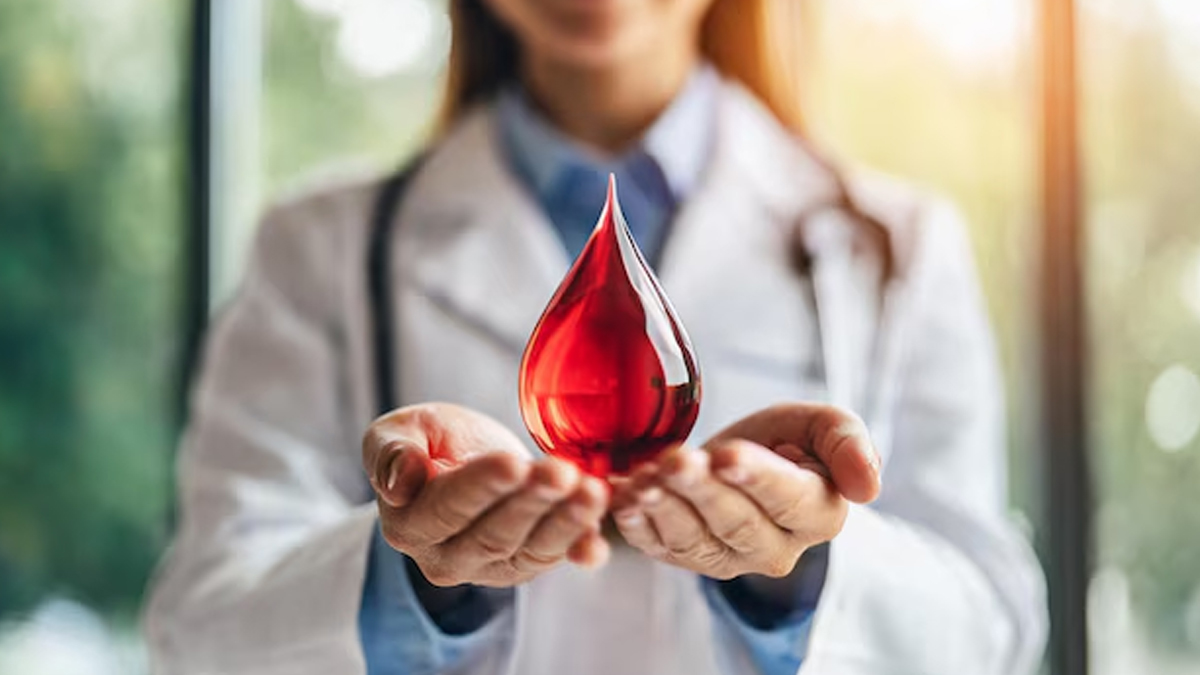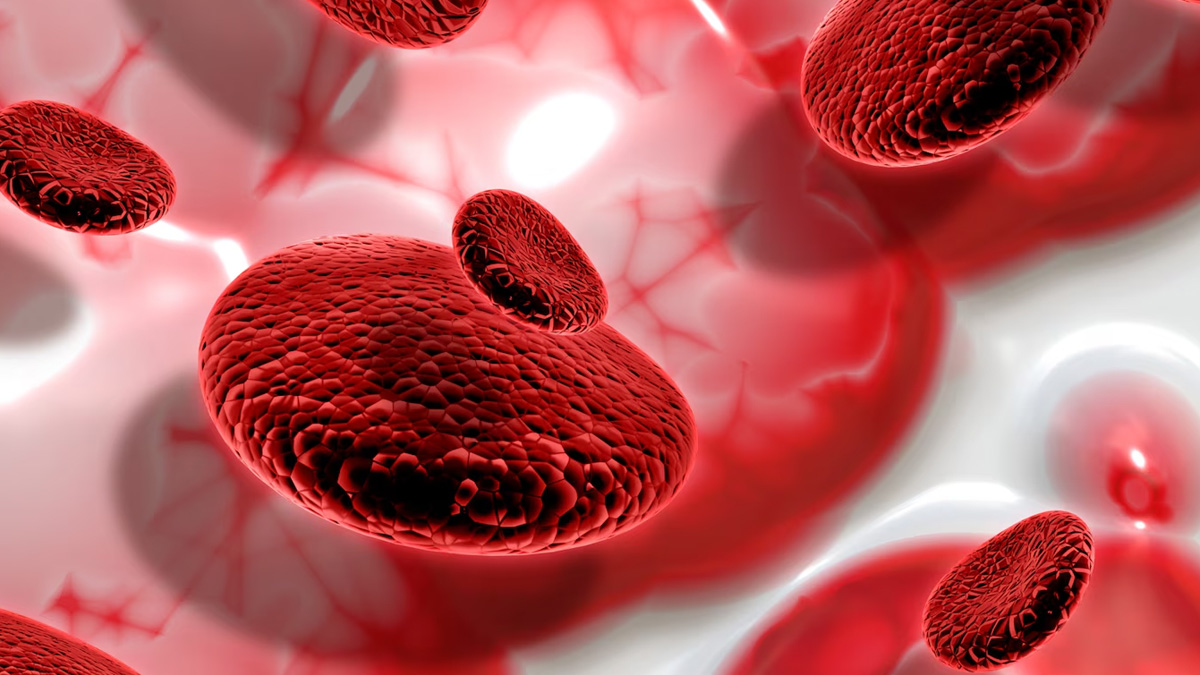
Every time we take the Complete Blood Count (CBC) test, the first thing we look for in the report is what we know of: haemoglobin. It is a protein in the Red Blood Cells (RBCs) that carries oxygen from the lungs to the rest of the body. Depending on the haemoglobin levels in the body, doctors detect various underlying conditions, including anaemia and polycythaemia. But did you know that in some cases, your haemoglobin levels can also help detect certain types of cancers?
Table of Content:-
In an interaction with the OnlyMyHealth team, Dr Aditya Sarin, Senior Consultant - Medical Oncology, Sir Gangaram Hospital, Delhi, explains the link.
Why Cancer Causes A Drop In Haemoglobin Levels

In a 2010 study published in Annals of Oncology, researchers suggested that anaemia, a condition characterised by low RBC and haemoglobin levels, is a frequent and serious complication in cancer patients. As per the study authors, this complication is driven largely by the cancer's inflammatory state. The study explains that inflammatory cytokines, particularly tumour necrosis factor-α (TNF−α) and interleukin-6 (IL−6), are key culprits. TNF−α directly suppresses red blood cell production by disrupting essential genetic regulators like GATA−1. Simultaneously, IL−6 prompts the liver to produce hepcidin, a hormone that blocks iron absorption from the gut and sequesters it within the body, making it unavailable for creating new haemoglobin.
According to Dr Sarin, cancer can lead to low haemoglobin through several mechanisms:
Chronic disease and inflammation: Many cancers produce inflammatory cytokines (like IL-6), which interfere with iron metabolism and reduce the body's ability to produce red blood cells—a condition called anaemia of chronic disease.
Bone marrow suppression: In cancers that infiltrate the bone marrow (like leukaemias, lymphomas, or metastatic solid tumours), the marrow’s ability to produce red blood cells is impaired.
Bleeding: Cancers of the gastrointestinal tract (like colon or gastric cancer), genitourinary system, or gynaecologic organs may cause chronic blood loss, leading to iron-deficiency anaemia.
Nutritional deficiencies: Poor appetite, malabsorption, or tumour burden can lead to deficiencies in iron, folate, or vitamin B12, all of which are essential for red blood cell production.
Chemotherapy and radiation: These treatments often damage rapidly dividing cells, including those in the bone marrow, leading to decreased red blood cell production.
How To Know If Low Haemoglobin Is Related To Cancer

There are certain red flags that low haemoglobin or anaemia may be a sign of an underlying cancer. These include:
- Unexplained fatigue and pallor that persist over time.
- Occult or visible bleeding (blood in stool, urine, or abnormal vaginal bleeding).
- Rapidly worsening anaemia without obvious cause (especially in men and postmenopausal women).
- Unintentional weight loss, night sweats, or persistent low-grade fevers.
- Bone pain or frequent infections, which may indicate marrow involvement.
- Anaemia accompanied by abdominal fullness, lymph node enlargement, or organomegaly may suggest a haematologic or metastatic malignancy.
In such cases, further work-up including imaging, endoscopy, bone marrow studies, and tumour markers may be warranted, advises Dr Sarin.
Types Of Cancers That Cause Low Haemoglobin
The following cancers frequently present with or cause anaemia:
- Gastrointestinal cancers (e.g., colorectal, stomach, esophageal) – due to occult bleeding or poor absorption of nutrients.
- Gynaecological cancers (e.g., cervical, endometrial) – often associated with heavy vaginal bleeding.
- Lung cancer commonly causes chronic inflammation and may involve the bone marrow.
- Leukaemias and lymphomas directly affect the bone marrow, reducing red blood cell production.
- Kidney cancer – affects erythropoietin production (a hormone that stimulates red blood cell formation).
- Multiple myeloma – leads to bone marrow suppression and impaired erythropoiesis
Also Read: The Quiet Emergency: Why Rare Cancers In India Deserve Urgent Attention
Can Low Haemoglobin Affect Cancer Outcomes?

The short answer is "yes". Dr Sarin suggests that anaemia (low haemoglobin) negatively impacts both quality of life and clinical outcomes in cancer patients.
For instance, symptoms such as fatigue, weakness, shortness of breath, and decreased functional capacity, which are common symptoms of anaemia, can impair a patient’s ability to tolerate treatment.
For those undergoing radiation therapy, the effectiveness may be reduced due to hypoxia, or low oxygen levels caused by anaemia. This is because the effectiveness of radiation therapy relies on oxygen to generate free radicals that kill tumour cells.
Moreover, anaemia may necessitate adjusting chemotherapy dosing or delaying treatment cycles.
What Treatment Usually Looks Like?
“If the cause of anaemia is chronic disease or tumour burden, successful treatment can reduce inflammation and improve red cell production,” says Dr Sarin.
He shares that surgical removal of bleeding tumours or initiating effective chemotherapy/radiation often corrects anaemia by controlling the source. However, some patients may need additional support, such as:
- Iron supplementation (oral or IV)
- Blood transfusions
- Erythropoiesis-stimulating agents (ESAs), though their use is carefully monitored due to potential risks in cancer.
Conclusion
Low haemoglobin levels can signal various underlying conditions, including anaemia. But anaemia itself can sometimes indicate certain types of cancers, such as gastrointestinal cancers, blood cancer, lung cancer, and kidney cancer. Doctors recommend getting a CBC test to detect any abnormalities in the blood. Symptoms such as fatigue, dizziness, and shortness of breath should not be ignored. Additionally, if you have any accompanying symptoms that indicate cancer, it is best to consult a doctor.
Also watch this video
How we keep this article up to date:
We work with experts and keep a close eye on the latest in health and wellness. Whenever there is a new research or helpful information, we update our articles with accurate and useful advice.
Current Version